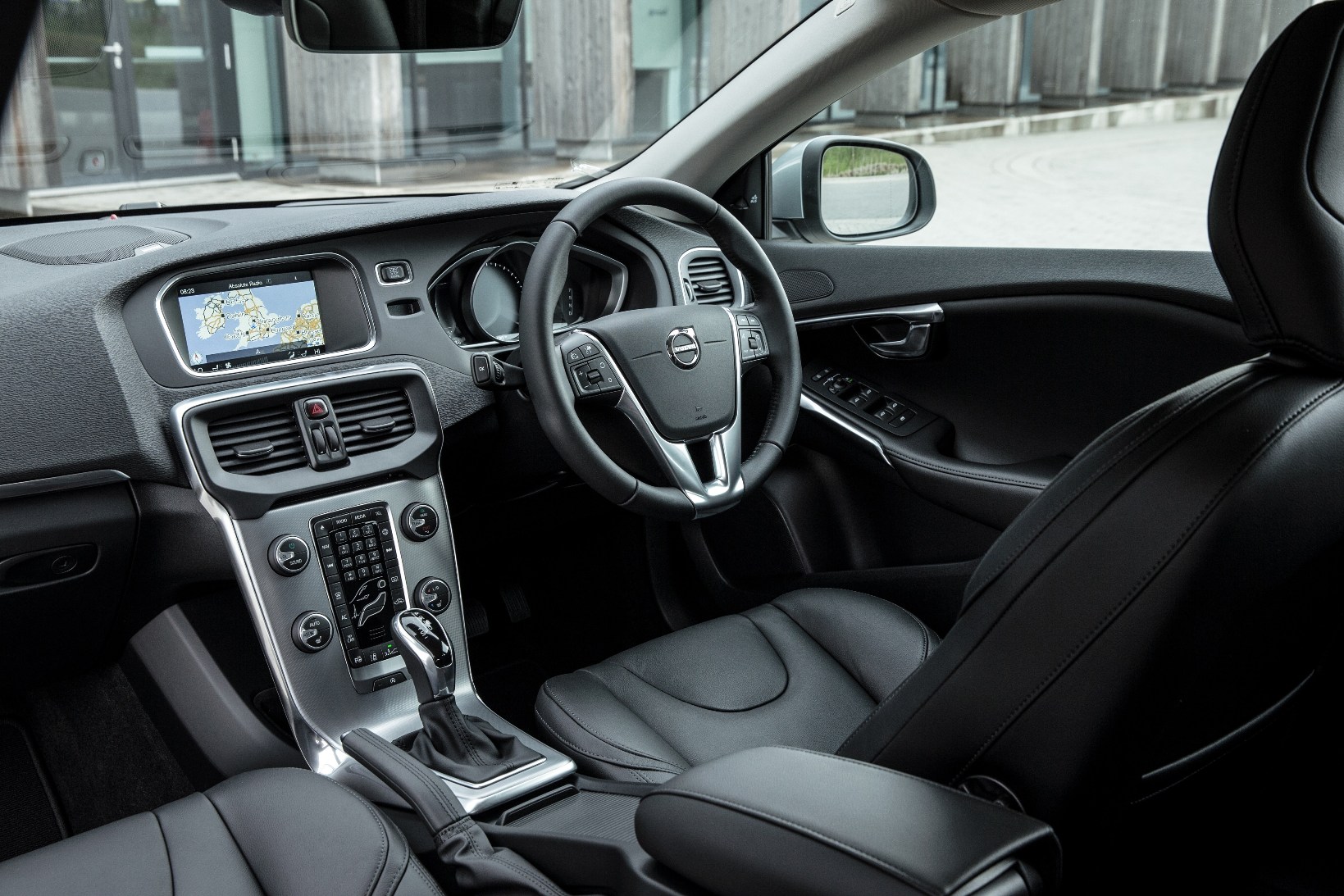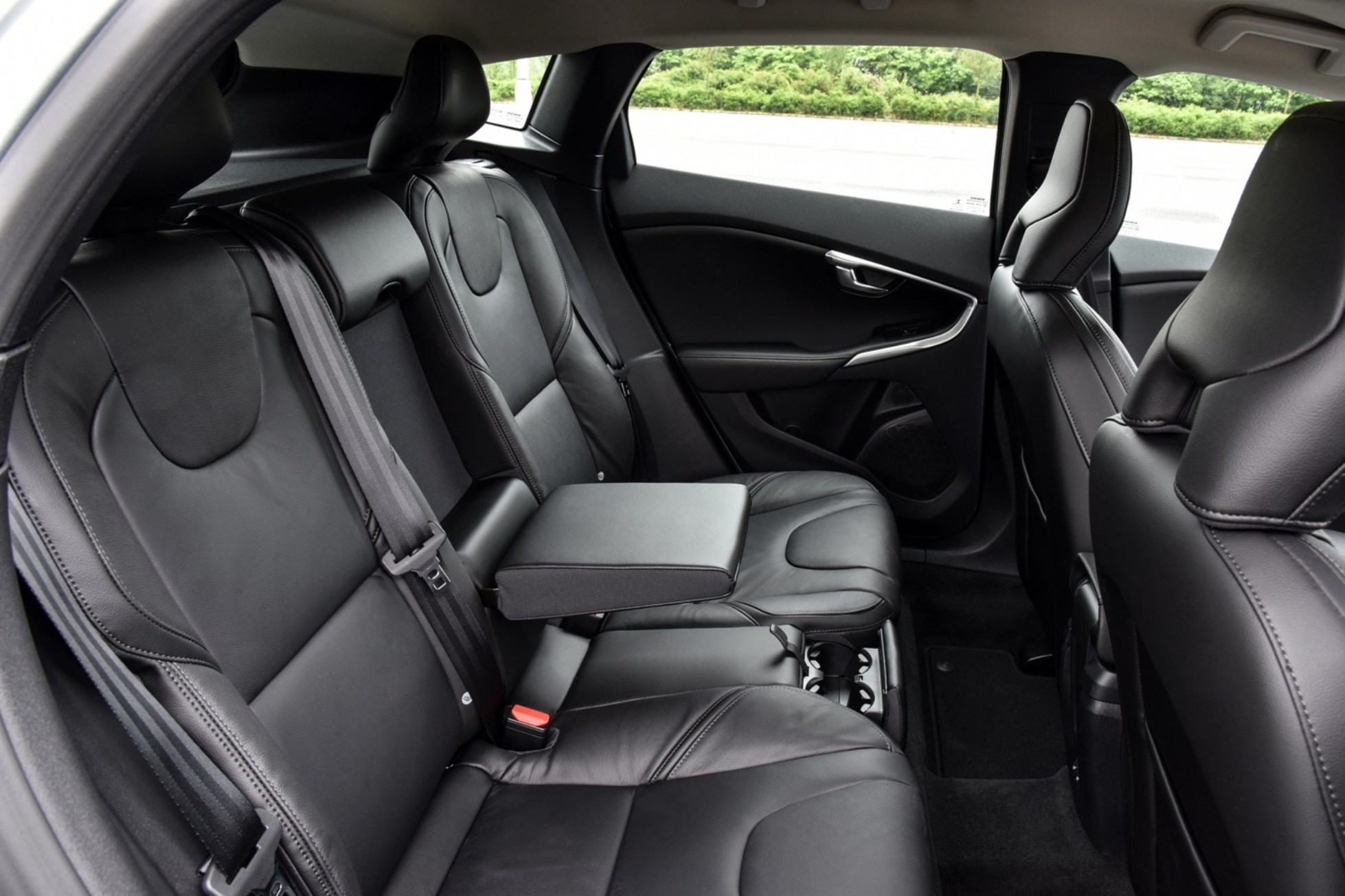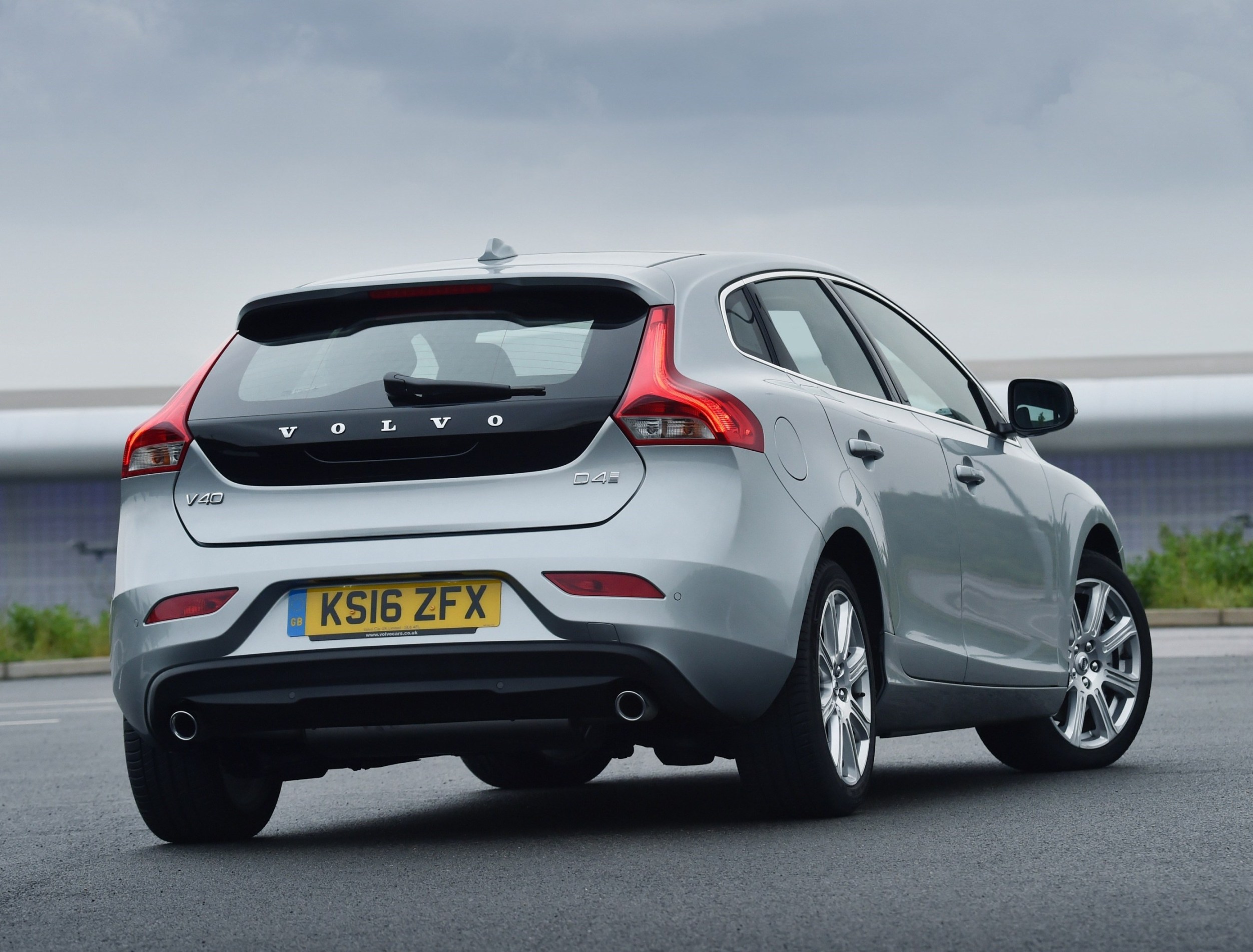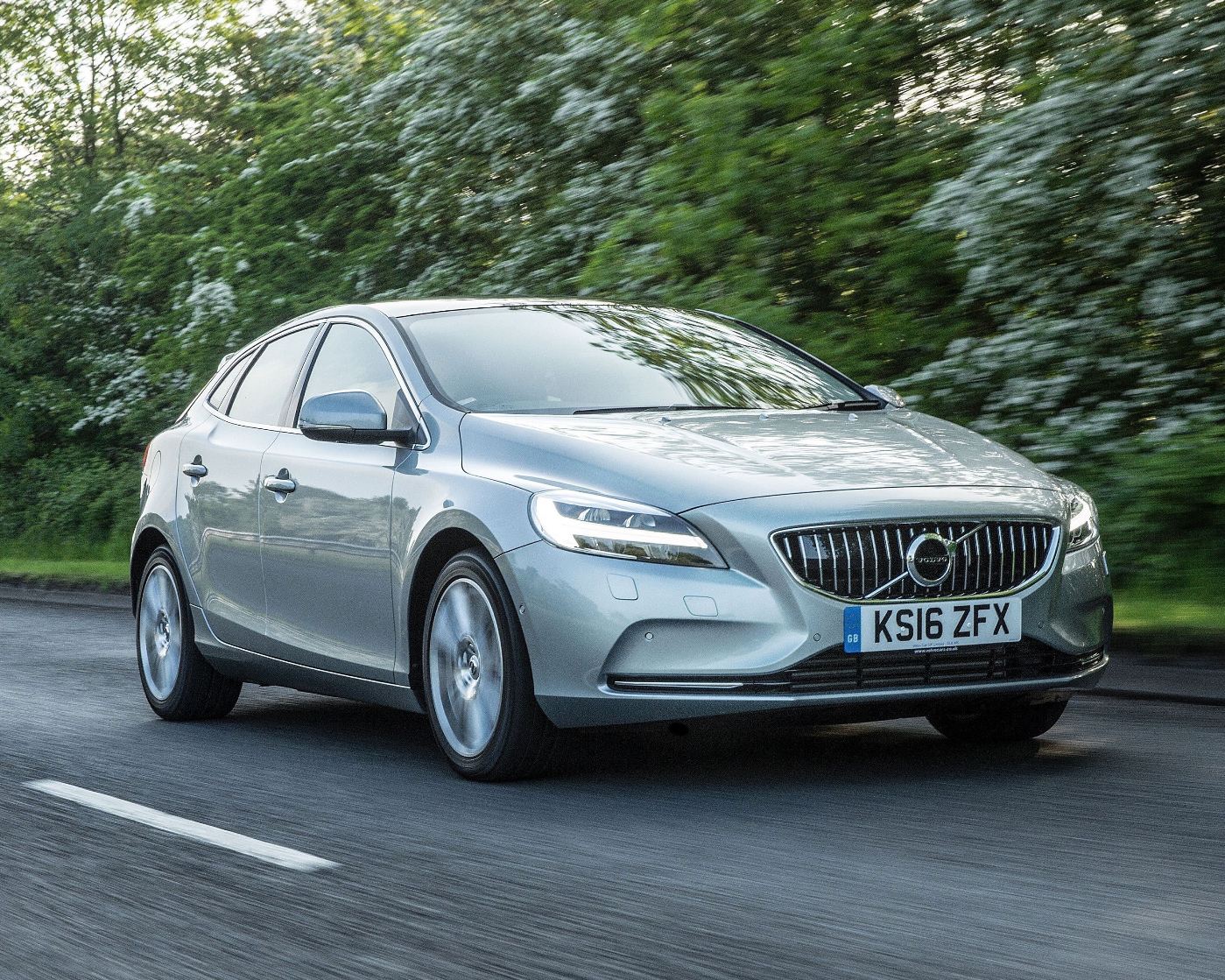 The Refreshed 2017 Model Volvo V40 Family.
The Refreshed 2017 Model Volvo V40 Family.
Assessed by David Miles (Miles Better News Agency).
Volvo’s best selling model range is the family of lower medium or compact C-segment sized V40 and V40 Cross Country five door hatchbacks. The latest styling and other changes include the new family face from the XC90 SUV and large S90 and V90 executive models.
New are LED headlights (Volvo claim the V40 line-up as the first models in their segment to get such items) and ‘Thor’ shaped daytime running lights. Also new are grille meshes with the visually striking Volvo Iron Mark design.
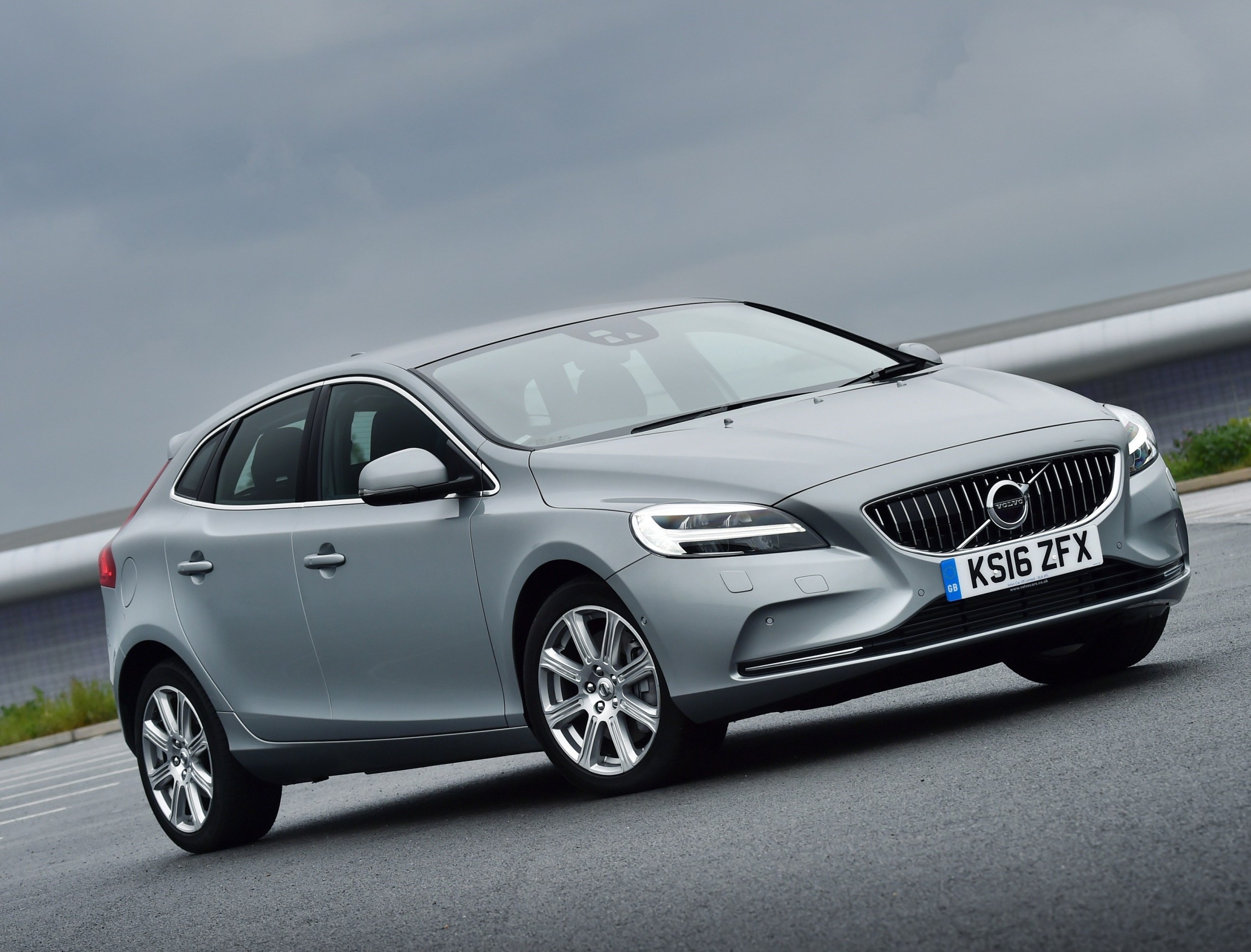 In addition eight new design wheels are offered plus five new body colours. The trim structure has changed in line with the XC90 and S90/V90 ranges as well with Momentum, Inscription, the sporty looking R-Design and the rugged Cross Country. The most popular Drive-E D2 manual 2.0 litre, 120 hp turbodiesel engine sees CO2 emissions lowered to just 89 g/km in all trim and wheel options.
In addition eight new design wheels are offered plus five new body colours. The trim structure has changed in line with the XC90 and S90/V90 ranges as well with Momentum, Inscription, the sporty looking R-Design and the rugged Cross Country. The most popular Drive-E D2 manual 2.0 litre, 120 hp turbodiesel engine sees CO2 emissions lowered to just 89 g/km in all trim and wheel options.
Unlike most other brands in this sector there is no down-sizing with engine capacities in the V40 family ranges. Whether the choice is petrol or diesel they are all 2.0 litre units. The choice of engine depends on the specification level chosen, but throughout the ranges the petrol units are T2, T3 and T5 with 122, 152 and 245 hp and the turbodiesels are D2, D3 and D4 with 120, 150 and 190 hp power outputs. The V40 models range in price from £20,255 to £32,015. The V40 Cross Country models range from £23,555 up to £33,975. There are of course extra cost option packs and other accessories to enhance your car even more.
I counted in the price list no less than 32 different V40 variants and 13 Cross Country versions so there should be a model for premium brand customers whether they are retail buyers or fleet and business user-chooser customers. They provide an alternative to the likes of the Audi A3 or BMW 1 Series, as well as the top specification VW Golf, Ford Focus and Vauxhall Astra, also the roomiest of all in this sector, the Skoda Octavia.
Volvo in the UK don’t quote sales figures but the V40 family of models is their best selling range with just over 17,000 sold last year out of their 43,500 total car sales for the year. Diesel versions accounted for 67% of V40 sales and almost 70% of customers were male.
My test V40 version was the most popular diesel variant, especially for business users – the D2 120 hp R-Design with the added level of Nav Plus and priced at £24,945. It provides the lowest CO2 level of just 89 g/km so there is no VED road tax at all, the company car Benefit-in-Kind tax rate is just 18% and insurance is Group 18E.
It also provides a sportier look and enhanced stability and torque vectoring for sharper performance and handling (in case you are wondering, torque vectoring refers to modern differential technology that enables the available torque to be varied between the driven wheels). The R-Sport spec. additions include sports style upholstery, sports front seats, sports pedals and mats, aluminium interior trim, 17-inch alloy wheels, sports suspension, R-Design front grille plus a lower front nose, rear diffuser and twin exhaust tailpipes.
The sport classification is all about style and specification rather than performance. Top speed is a modest 118 mph with zero to 62 mph acceleration time taking 10.5 seconds. Apart from the benefit of minimal tax costs officially this model will officially return 84.1 mpg in the Combined Cycle. In reality my test driving never got close to that figure with 67 mpg being the best I achieved on a 400-mile run using mainly motorways and dual carriageways from The Cotswolds to deepest Suffolk and back. With some local winding road travel and a few trips into my local town the overall figure was 58.2 mpg which I was happy with but it is too far removed from the unrealistic official figure.
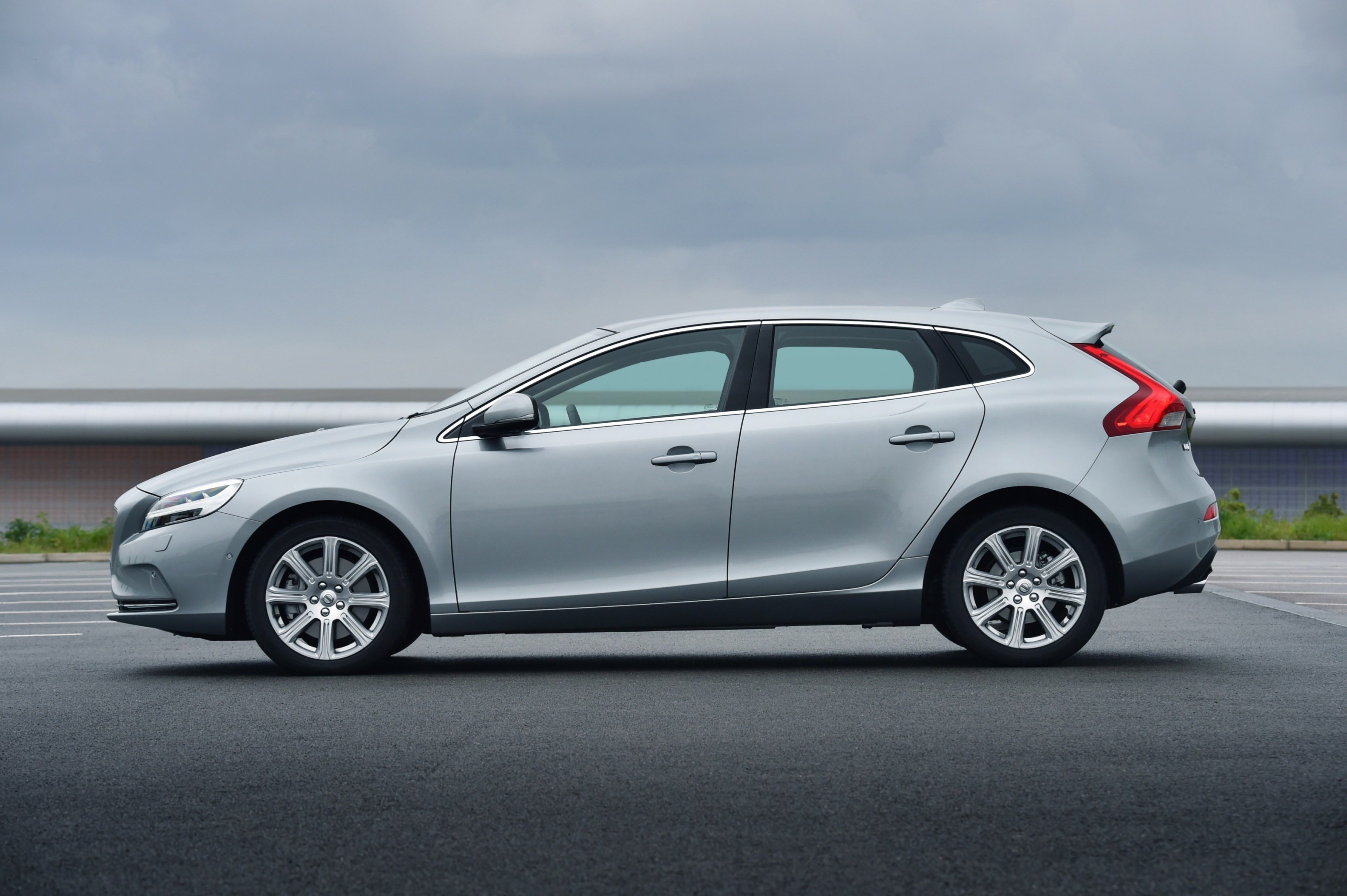 The low silhouette exterior design with its wedge side profile and rising waistline does set the V40 apart from most other me-too C-segment hatchbacks. It looks classy and of course it has under the skin lots of Volvo’s meritorious safety features including an under-the-bonnet pedestrian impact airbag also City Safety braking and a full range of airbags. Connectivity services are a must these days and Nav Plus models get Sensus Connect with access to selected Web Apps plus a 7.0-inch colour display screen, sat-nav, cruise control and rear park assist join the usual features of electric windows and door mirrors, air-con, hill-start assist, Bluetooth, DAB radio and 60/40 split folding rear seats.
The low silhouette exterior design with its wedge side profile and rising waistline does set the V40 apart from most other me-too C-segment hatchbacks. It looks classy and of course it has under the skin lots of Volvo’s meritorious safety features including an under-the-bonnet pedestrian impact airbag also City Safety braking and a full range of airbags. Connectivity services are a must these days and Nav Plus models get Sensus Connect with access to selected Web Apps plus a 7.0-inch colour display screen, sat-nav, cruise control and rear park assist join the usual features of electric windows and door mirrors, air-con, hill-start assist, Bluetooth, DAB radio and 60/40 split folding rear seats.
Overall the V40 is a smart package, different in small details which make a big difference from more numerous models in this competitive sector. The interior has clean styling lines, high quality materials and everything is well laid out and it is easy to live with in most areas. However the leg space for the three rear seats is not that generous so that might not be its strongest appeal for family use. There is a modest boot offering 335 litres (11.83 cu.ft) of space and this increases up to a maximum of 1,021 litres (36.06 cu.ft) with the rear seat backs folded down.
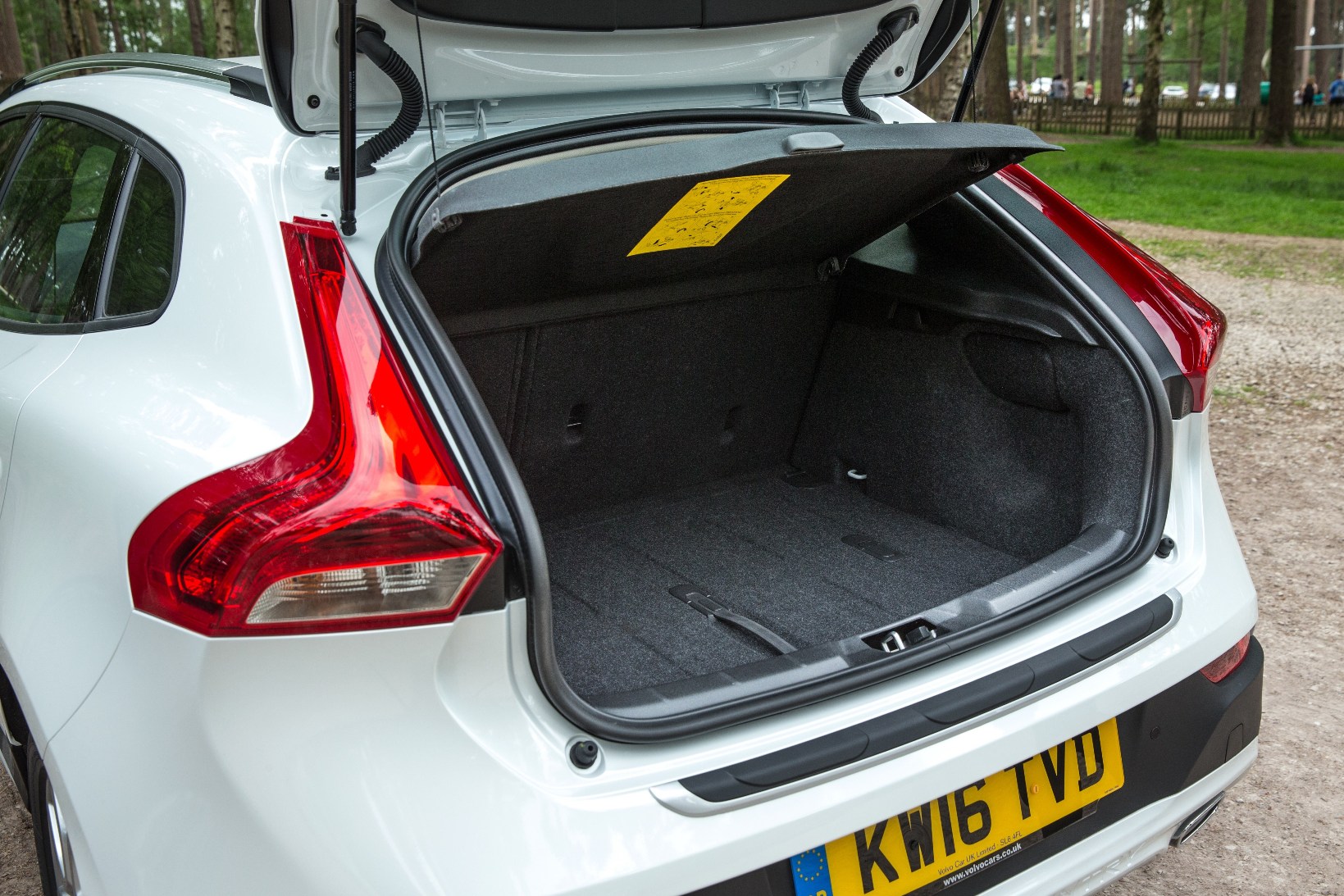
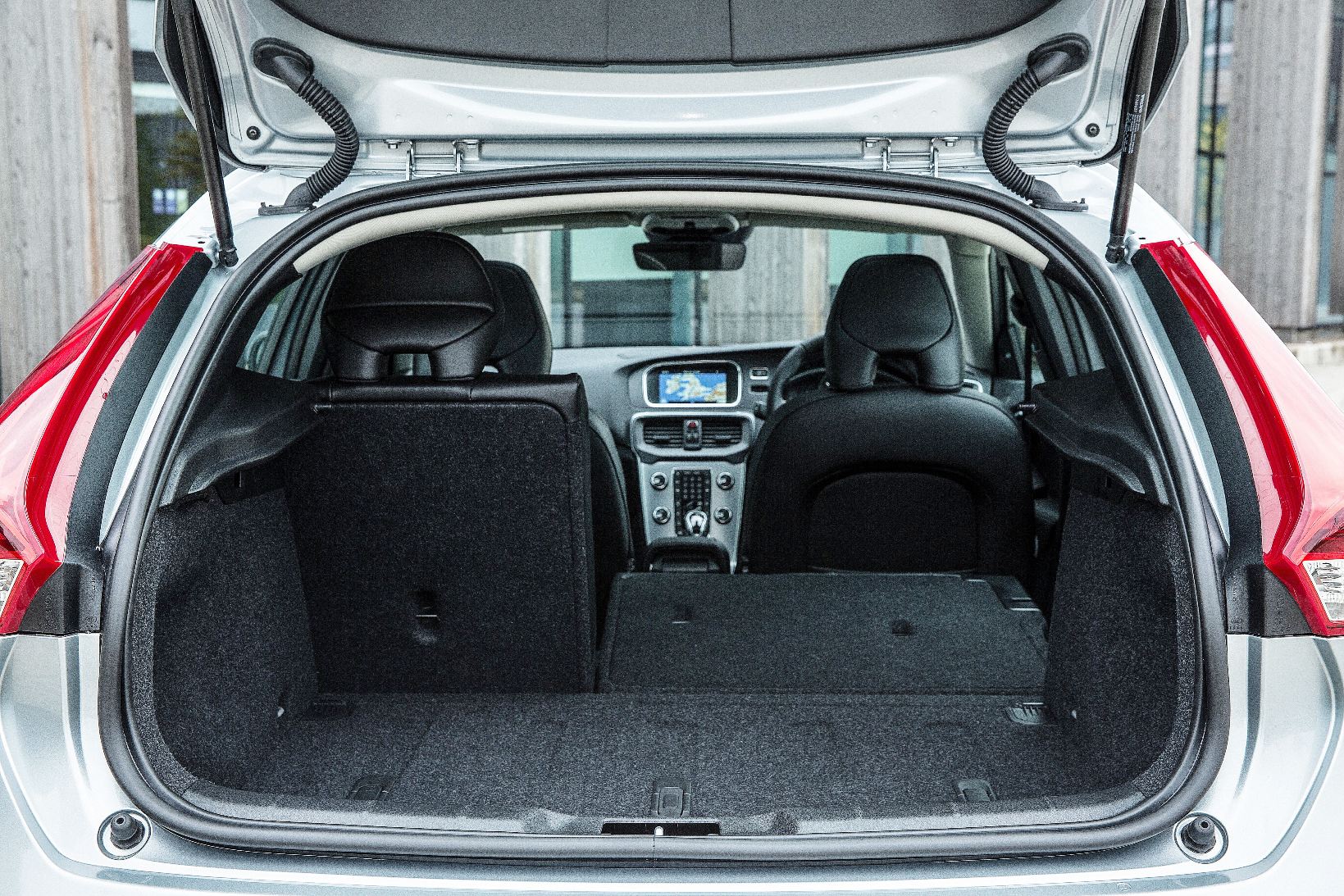 Whilst the suspension of the R-Design version gives a firmer ride it does sharpen up the car’s front wheel drive handling and apart from feeling secure it was also agile and responsive for quick changes in direction. Overall it felt well-balanced, performing without fuss or stress and you just know it’s as safe as any car can be of this size – which is comforting.
Whilst the suspension of the R-Design version gives a firmer ride it does sharpen up the car’s front wheel drive handling and apart from feeling secure it was also agile and responsive for quick changes in direction. Overall it felt well-balanced, performing without fuss or stress and you just know it’s as safe as any car can be of this size – which is comforting.
Volvo’s new generation of Drive-E engines I rate highly. The all-aluminium four cylinder turbodiesel units are responsive and although the D2 version I tried only has 120 hp, the high 280 Nm (207 lb.ft) of torque is available from just 1,500 rpm, which makes it very user-friendly in the important areas of accelerating from low to medium range speeds. The six-speed manual gearbox has overdrive fifth and sixth gears, helping to obtain the excellent low CO2 emissions which reduce running costs. Using low rpm for 70 mph is effortless but swing away from open roads and onto winding country roads and fourth gear was used more often than the higher ratios. On paper the official Combined Cycle fuel economy figure of 84.1 mpg is tempting but far out of reach in real-life terms. By no means did I push my test car very hard due to the usual heavy traffic conditions everywhere these days so the 58.2 mpg figure was impressive but not close to what is obtained under official EU test conditions.
VERDICT
The V40 D2 has lots to offer customers who want a premium family car in terms of classy styling, lots of safety kit, generally a good-to-drive vehicle and with fuel efficiency which leads to low tax costs. As it’s Volvo’s best-selling model range, it does what it is designed to do, so you can see why it is popular with discerning buyers who do not want a run-of-the-mill mid-sized family hatchback. Exclusivity still appeals.
For: Distinctive styling, high quality interior, loads of safety features, low CO2 emissions, minimal tax costs, smooth and responsive engine.
Against: Real-life fuel economy fell well short of the official Combined Cycle figure, limited rear seat legroom, smallish boot, warranty mileage limit should be higher.
Milestones and Wheels-Alive Tech. Spec. in Brief:
Volvo V40 D2 Re-Design Nav Plus. Price: £24,945.
Engine/transmission: Drive-E 2.0 litre, four cylinder, turbodiesel, 120 hp, 280 Nm (207 lb.ft) of torque from 1,500 rpm, six speed manual gearbox, front wheel drive.
Performance:
0-62 mph: 10.5 seconds.
Top speed: 118 mph.
Fuel consumption: Combined Cycle 84.1 mpg (58.2 mpg on test).
Emissions and taxation: CO2 89 g/km, VED £0, BIK company car tax 18%.
Insurance Group: 18E.
Warranty: Three years/60,000 miles.
Dimensions/capacities: L 4,369 mm (14.33 ft), W 1,857 mm (6.09 ft), H 1,439 mm (4.72 ft), boot/load space 335–1,032 litres (11.83–36.06 cu.ft), braked towing weight 1,500 kg (3,307 lb), five doors/five seats.
